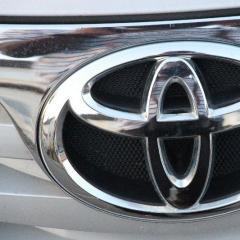You know I wouldn't be so hasty.
I've been running older motors for 25+ years now and I'm sure I've tried every possible additive on the market. Redex, Slick50,Octane boosters,STP,injector cleaners and god knows what else and to be honest they very rarely seem to make any difference whatsoever.
Even the old, remove your sparks, pour a 1/4 of a bottle of Redex down each cylinder, let it soak 15-30 mins then crank the engine over on the starter to expel the gunk and carbon and to remove the gummed up carbon and oil and free your rings to help them seal trick gives ambiguous results.
The trouble is you take this or other action to help your high miler and either it helps for a while or does very little but the problem is you cannot say exactly what would have happened if you did nothing. Ok, so it improves for 1000,2000 miles then seems to get worse but you've no real idea if having done nothing it would have began misbehaving in 500-750 miles because face it, you're engine must be causing you concern for you to want to take some action to improve things.So basically,up to the point you do or don't do anything the engine had issues. If you do nothing and it deteriorates over the next 1000 miles you'll believe if you'd treated it it prob would have kept it going. You put in an additive and again it deteriorates in the next 1000 miles you'll believe the additive was to blame.Either way, whether you add or don't it probably only had a 1000 miles left in it.
Adding something to help in an engine that's significantly worn won't make any difference because the rings, mains, big ends, cam journals or whatever are worn to the point filling the engine full of oil the consistency of golden syrup won't help, only a rebuild will do that.
Now for a reasonably decent engine thay just starting to use a little oil but generally runs well then clearly the best thing is regular oil changes, every 3000-4000 miles I'd suggest and a top quality oil.
Will an oil additive helpat all??
Usually not but as I said in 25+ years I've found the only one that does seem to. work is Wynns, not sure about it increasing compression and all that but it does work. on noisy, rattling tappets, particularly hydraulic ones but solid.too.
Now, somebody commented that usimg higher octane fuel is a better move, gives you more power and better mpg etc.
They are sort of right in a very roundabout way. Superunleaded and these Vmax power fuels or a whatever the particular brand name may be seem to have superior detergents and cleaners that will benefit a high miler, particularly our vvt-i motors it is said.
Apparently, filling every 4th tank with higher octane 97 or 98 ron fuel and the other 3 times run of the mill 95 octane unleaded is the best approach which is kind of what I do with mine.
As for the claim about getting more power from 98 ron V power or V max fuel is I'm afraid untrue.Higher octane fuel is more resistant to knocking allowing for higher compression ratio or more precisely higher cylinder temperature and pressure before knocking occurs. Unless your engine is experiencing predetonation and knocking on normal unleaded fuel then a higher octane will make absolutely no difference, if it ain't knocking you don't need to run it on fuel with a higher resistance to predetonation and preignition. If your engine is knocking during normal running on normal fuel then your engine has a lot more problems than a change of fuel can fix. No the benefit of Superunleaded or V power is in the superior cleaners and detergents.
As for adding Wynns, well I tell you whay I'll let you know in a month or two whether it's good or bad. I've literally just sat down after doing an oil change on my 160,000 miles 1.8 vvt-i. It does use some oil, particularly if I give the engine a bit of abuse on the road but generally speaking it's fine but I've got another 1ZZ-FE engine in my garage which I will be stripping and rebuilding shortly, aswell as modifying a bit so I really want another 3000-6000 out of the engine I have.
I've changed oil too, thought I'd try Mobil 3000 5W-30 fully synthetic instead of Halfords 5W-30 I've been using for the last few years. I tried Castrol Magnatec in my Redtop Vauxhalls and found it to be basically crap for the price of it and found the Halfords brand to be superior believe it or not but I've used Mobil this time round AND bunged in the old Wynns Supercharge oil treatment.Which as I've tried to explain, in my experience it's purely a judgement call. Plenty of people will tell you that you shouldn't use it and explain exactly why they know best but for me at least I've had a lifetime around cars and engines, maintaining, modifying and racing so I'll fall back on my experience rather than opinion lol



